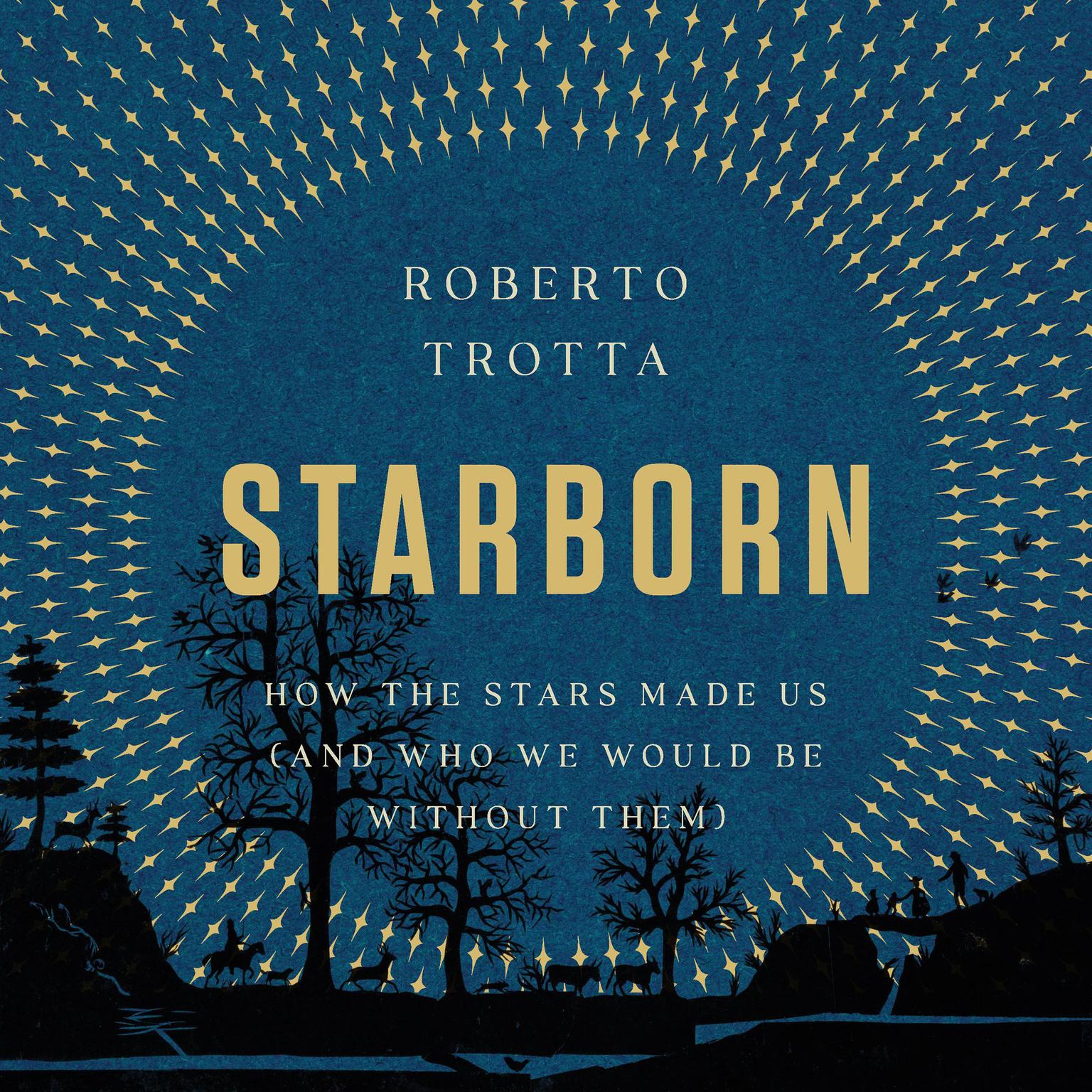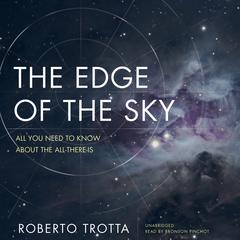 Play Audiobook Sample
Play Audiobook Sample
Starborn: How the Stars Made Us (and Who We Would Be Without Them) Audiobook
 Play Audiobook Sample
Play Audiobook Sample
Quick Stats About this Audiobook
Total Audiobook Chapters:
Longest Chapter Length:
Shortest Chapter Length:
Average Chapter Length:
Audiobooks by this Author:
Publisher Description
A sweeping inquiry into how the night sky has shaped human history
For as long as humans have lived, we have lived beneath the stars. But under the glow of today’s artificial lighting, we have lost the intimacy our ancestors once shared with the cosmos.
In Starborn, cosmologist Roberto Trotta reveals how stargazing has shaped the course of human civilization. The stars have served as our timekeepers, our navigators, our muses—they were once even our gods. How radically different would we be, Trotta also asks, if our ancestors had looked up to the night sky and seen… nothing? He pairs the history of our starstruck species with a dramatic alternate version, a world without stars where our understanding of science, art, and ourselves would have been radically altered.
Revealing the hidden connections between astronomy and civilization, Starborn summons us to the marvelous sight that awaits us on a dark, clear night—to lose ourselves in the immeasurable vastness above.
Download and start listening now!
"A sweeping tour of humanity’s relationship with the night sky, Starborn soars from the historical to the personal. Trotta reveals how our lives are intertwined with the stars, from the exploration of our own planet and the birth of the sciences to how the human gaze turned inward. He also offers fantastical vignettes of what might have been—imagining a world without the heavens—and a clear-eyed view of humankind’s current and future connection with Earth and the cosmos."
— Professor Emily Levesque, author of The Last Stargazers
Quotes
-
Trotta offers a stellar survey of the 'remarkable but often unrecognized' role played by stars and other cosmic bodies in human history... . The prose is evocative...and the history fascinates...it’s a stimulating take on how the heavens have shaped life on Earth.
— Publishers Weekly -
A largely satisfying miscellany about stars.
— Kirkus -
A stunning and unforgettable voyage through the stars. Almost every page will make you gulp in astonishment. To be so authoritative and yet so readable and companionable is a rare and priceless achievement.
— Stephen Fry, actor -
We are in danger of losing our night skies, our first and most primal connection to the greater universe around us. Roberto Trotta’s rich and poetic book is a powerful call to preservation. By tracing the intimate connections between human history and the stars above, he reminds us the skies are not only filled with beauty, but also with meaning and promise.
— Sean Carroll, author of The Biggest Ideas in the Universe -
Who would’ve thought the stars were so decisive for humanity? Fascinating and wondrous, the untold starry tale of how we came to be and a stark warning of the starless desolation ahead, should we be unwise enough to neglect our cosmic heritage.
— Professor Carissa Véliz, author of Privacy Is Power -
A fascinating insight into how and why the study of the stars has been central to the human story, and a book for anyone who cares about human culture and where it will be heading next.
— Andy Lawrence, author of Losing the Sky -
The most universal feature of our environment, the starry sky has been wondered at by all human societies since prehistoric times. Trotta draws on a trove of historical, scientific, and literary sources to reveal the often-surprising influences of a cosmic perspective on human lives. A fascinating book, admirable for erudition and style, that will leave readers viewing the stars with fresh eyes.
— Professor Martin Rees, Astronomer Royal -
Beautifully written and intensely personal, Trotta has produced the perfect guide to how the star-speckled sky has shaped the human story. A lyrical hymn to the cosmos and our intimate connection to the heavens.
— Professor Lewis Dartnell, author of Being Human -
Stimulating and sobering, a very readable inquiry into the night sky with a broad sweep.
— Dame Jocelyn Bell Burnell, University of Oxford
Starborn Listener Reviews
Be the first to write a review about this audiobook!
About Roberto Trotta
Roberto Trotta is a theoretical cosmologist in the astrophysics group of Imperial College London. He has held research positions at the University of Geneva and the University of Oxford, as well as visiting positions at the African Institute for Mathematical Sciences in Cape Town, the Institut d’Astrophysique de Paris, and the University of California at Santa Barbara. One of the world’s leading figures in “astrostatistics,” a new discipline focusing on the use of statistical methods to solve problems in cosmology and astrophysics, he has published more than fifty scientific papers, contributed to two books, and received numerous awards for his research, including the Michelson Prize of Case Western Reserve University, the Lord Kelvin Award of the British Association for the Advancement of Science, and a Public Engagement Fellowship by the Science and Technology Facilities Council, UK.




